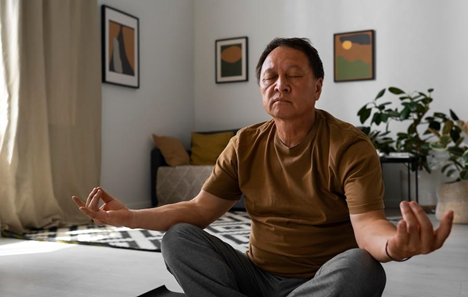Holistic Approaches To Urinary Incontinence: Combining HRT with Lifestyle Changes

Are you struggling with urinary incontinence? You’re not alone—millions of people experience this condition worldwide, impacting quality of life. Holistic approaches, like combining Hormone Replacement Therapy (HRT) with lifestyle changes, offer a comprehensive treatment. HRT helps restore hormonal balance and can improve symptoms when paired with dietary changes, pelvic floor exercises, weight management, and bladder training. By addressing the root causes of urinary incontinence, these strategies can improve bladder control and transform your life.
Understanding Urinary Incontinence
Urinary incontinence is the involuntary loss of urine, ranging from mild leakage to complete loss of bladder control. Age, hormonal changes, pregnancy, childbirth, and medical conditions can cause it. Beyond physical discomfort, it can lead to emotional distress, anxiety, and social isolation. There are different types of incontinence, including stress incontinence (leakage with activity), urge incontinence (sudden urge to urinate), overflow incontinence, and functional incontinence. Identifying the type is key to effective management and treatment. Many people with incontinence may feel embarrassed or reluctant to seek help, but effective treatments like medication, therapy, and lifestyle changes can significantly improve their quality of life.
Holistic Approaches To Managing Urinary Incontinence
A holistic approach to managing urinary incontinence considers the whole person—body, mind, and spirit—addressing symptoms and underlying causes. This strategy includes physical interventions, nutritional adjustments, emotional support, and alternative therapies by combining medical treatments like hormone replacement therapy (HRT) with lifestyle changes. This approach empowers individuals to actively participate in healthcare, fostering confidence and resilience to make informed decisions. This journey can be transformative through education, support groups, and professional guidance.
Exploring Hormone Replacement Therapy (HRT)
Hormone Replacement Therapy (HRT) supplements natural hormone levels, especially during menopause, when they decline. It’s commonly used to alleviate symptoms like hot flashes and mood swings, but it can also improve bladder control by restoring estrogen levels, which maintain bladder function. However, HRT isn’t suitable for everyone. Factors like medical history, cancer risk, cardiovascular health, and personal preferences should be considered. Consulting with a healthcare provider can help individuals weigh the benefits and risks.
The Benefits And Risks Of HRT for Urinary Incontinence
HRT can offer significant benefits, especially for women experiencing menopause, including improved urinary symptoms and enhanced quality of life. However, it also carries potential risks, such as increased risks of certain cancers, blood clots, and cardiovascular issues.
According to Forever Young, The decision to use HRT should be carefully balanced, considering these risks and benefits. Regular monitoring and consultation with a healthcare provider are essential to managing adverse effects and ensuring treatment remains safe and effective.
Ultimately, the choice to use HRT should be made collaboratively with your healthcare provider, considering your health profile and any possible contraindications.
Lifestyle Changes For Managing Urinary Incontinence
Alongside HRT, adopting specific lifestyle changes is key for managing urinary incontinence. Avoiding irritants like caffeine, alcohol, and spicy foods can help. Keeping a food diary to identify triggers aids in making informed choices. Staying hydrated supports good urinary function, but it’s important to balance fluid intake, especially before bedtime. Physical activity, including Kegel exercises, strengthens pelvic floor muscles, improves bladder control, and reduces incontinence episodes.
Combining HRT with Lifestyle Changes For Optimal Results
The combination of Hormone Replacement Therapy (HRT) and lifestyle modifications offers a powerful strategy for managing urinary incontinence. HRT addresses hormonal imbalances that may contribute to bladder issues, while lifestyle changes support overall well-being. Each person is unique, so it’s essential to tailor the treatment based on individual preferences, medical history, and specific symptoms. Regular follow-ups with healthcare providers ensure the treatment remains effective and allow for necessary adjustments. Proactive communication and engagement in your care can help you develop a holistic program for managing urinary incontinence effectively.
Natural Remedies And Alternative Therapies For Urinary Incontinence
In addition to HRT and lifestyle changes, many people explore natural remedies and alternative therapies for managing urinary incontinence. Herbal supplements like saw palmetto and pumpkin seed extract may strengthen bladder function and reduce urinary urgency. Acupuncture, which involves inserting thin needles at specific points, has shown promise in improving urinary control and decreasing symptoms.
Mindfulness practices such as yoga and meditation can also help manage urinary incontinence by reducing stress and anxiety, which can worsen symptoms. Regular mindfulness can promote relaxation and improve symptoms.
The Importance Of A Holistic Approach
A holistic approach to managing urinary incontinence integrates physical, emotional, and mental health. It involves a comprehensive strategy addressing symptoms and underlying factors, empowering individuals to manage their health effectively.
This approach fosters collaboration among healthcare providers, mental health professionals, fitness experts, and nutritionists to create a cohesive plan. Combining medical treatment, lifestyle changes, and holistic therapies can effectively manage urinary incontinence, improving quality of life and well-being.
Seeking Professional Guidance For Managing Urinary Incontinence
Navigating urinary incontinence can be challenging, but professional guidance is essential for developing the right treatment plan. At the Northwest Continence Center, healthcare providers, including urologists, gynecologists, and nurse practitioners, specialize in diagnosing and managing urinary issues. They offer valuable insights into a range of treatment options, including hormone replacement therapy (HRT), lifestyle modifications, and alternative therapies. Open communication with your healthcare provider is vital. Sharing detailed information about your symptoms, concerns, and goals allows for personalized recommendations tailored to your needs. Support groups and counseling can also provide emotional support, practical coping strategies, and a sense of community.
Conclusion: Empowering Yourself To Take Control Of Urinary Incontinence
Urinary incontinence can affect daily life, but it doesn’t have to define your experience. Combining Hormone Replacement Therapy with lifestyle changes can help manage symptoms effectively. Understanding the link between hormones, lifestyle, and bladder health is key to creating a personalized treatment plan.
With support and collaboration from healthcare providers, you can regain control and confidence. Take the first step by exploring holistic approaches that work for you—the path to better bladder health is within reach.














